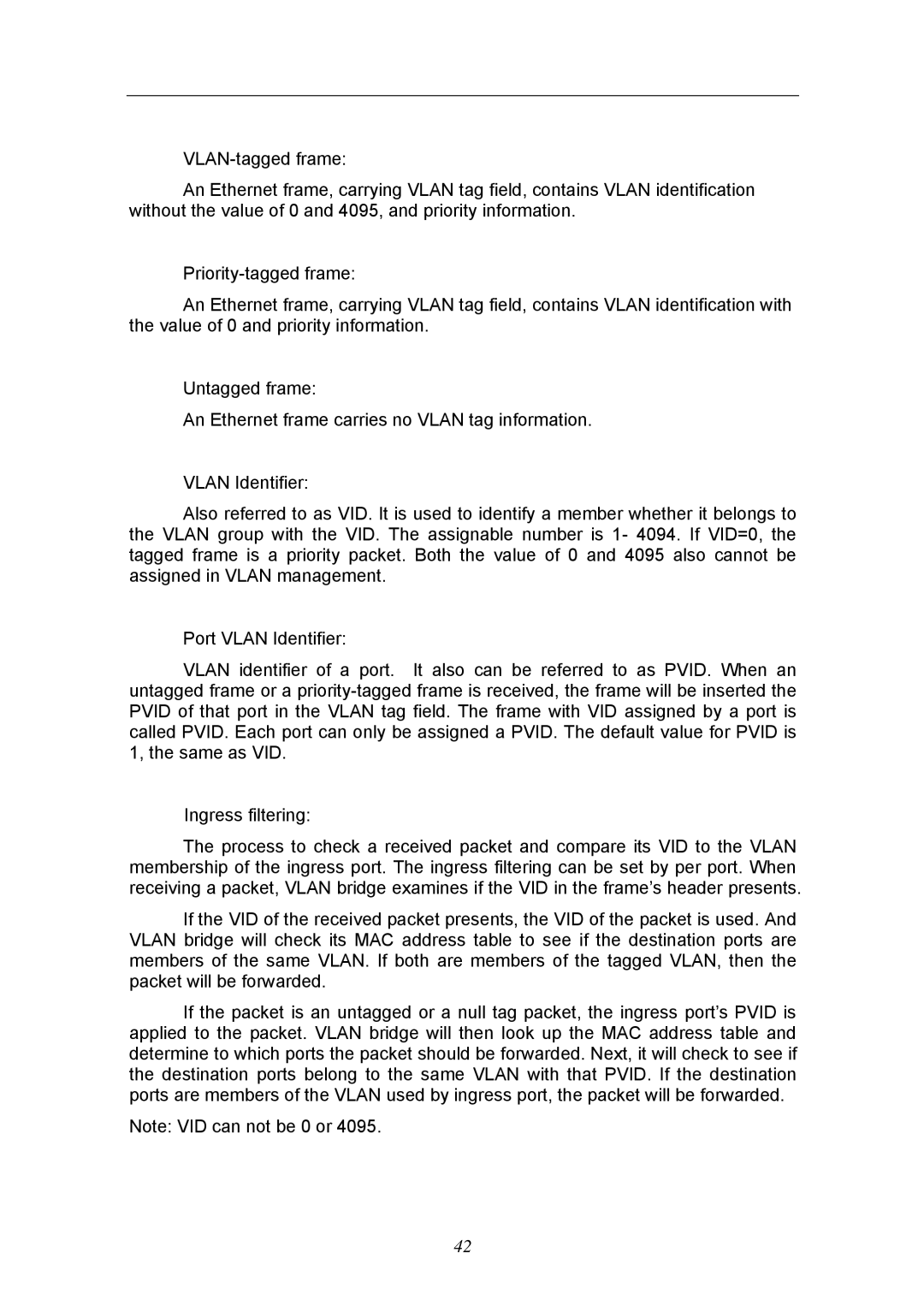An Ethernet frame, carrying VLAN tag field, contains VLAN identification without the value of 0 and 4095, and priority information.
An Ethernet frame, carrying VLAN tag field, contains VLAN identification with the value of 0 and priority information.
Untagged frame:
An Ethernet frame carries no VLAN tag information.
VLAN Identifier:
Also referred to as VID. It is used to identify a member whether it belongs to the VLAN group with the VID. The assignable number is 1- 4094. If VID=0, the tagged frame is a priority packet. Both the value of 0 and 4095 also cannot be assigned in VLAN management.
Port VLAN Identifier:
VLAN identifier of a port. It also can be referred to as PVID. When an untagged frame or a
Ingress filtering:
The process to check a received packet and compare its VID to the VLAN membership of the ingress port. The ingress filtering can be set by per port. When receiving a packet, VLAN bridge examines if the VID in the frame’s header presents.
If the VID of the received packet presents, the VID of the packet is used. And VLAN bridge will check its MAC address table to see if the destination ports are members of the same VLAN. If both are members of the tagged VLAN, then the packet will be forwarded.
If the packet is an untagged or a null tag packet, the ingress port’s PVID is applied to the packet. VLAN bridge will then look up the MAC address table and determine to which ports the packet should be forwarded. Next, it will check to see if the destination ports belong to the same VLAN with that PVID. If the destination ports are members of the VLAN used by ingress port, the packet will be forwarded.
Note: VID can not be 0 or 4095.
42
